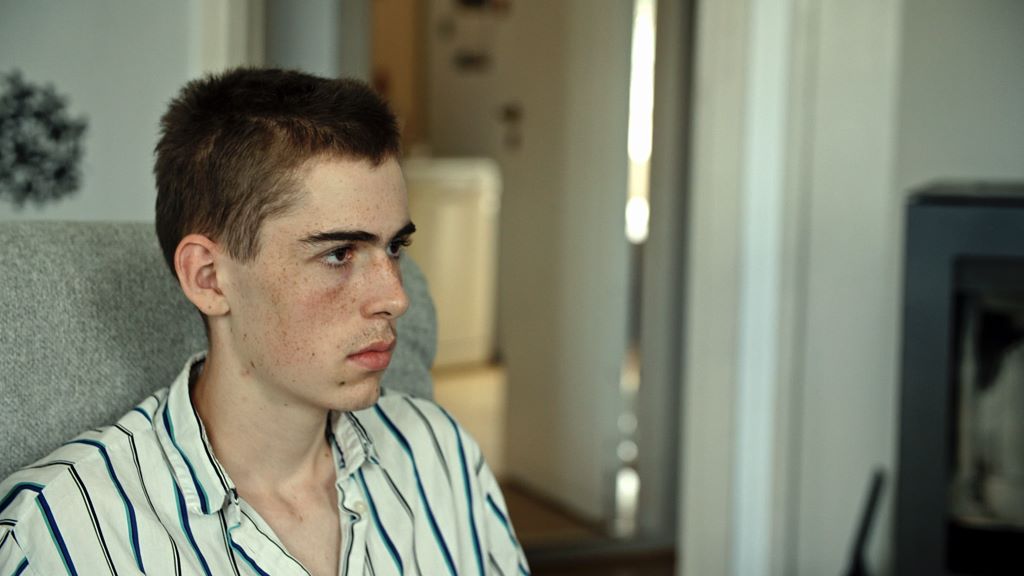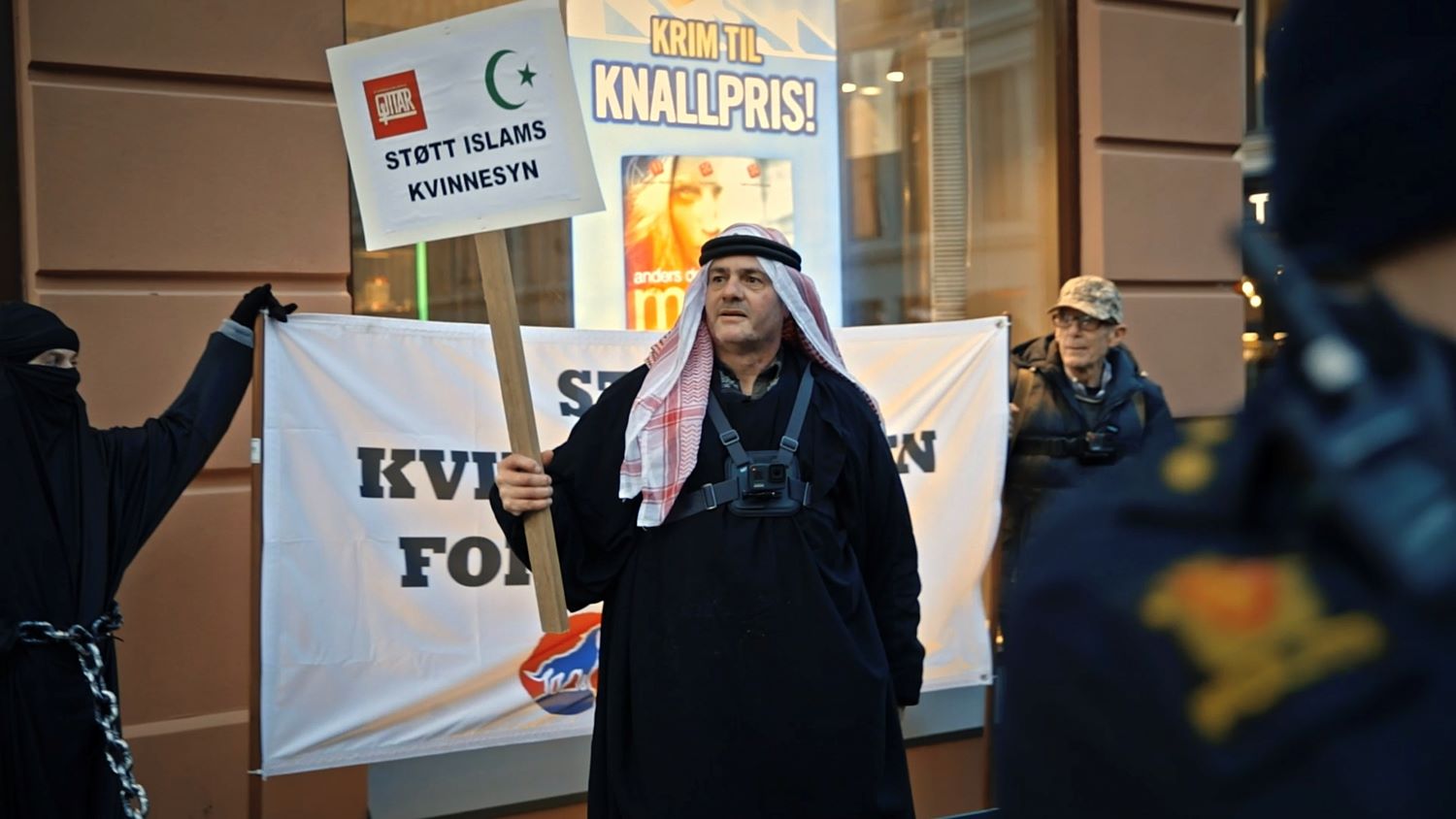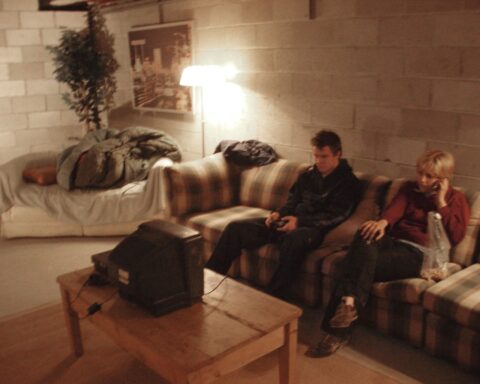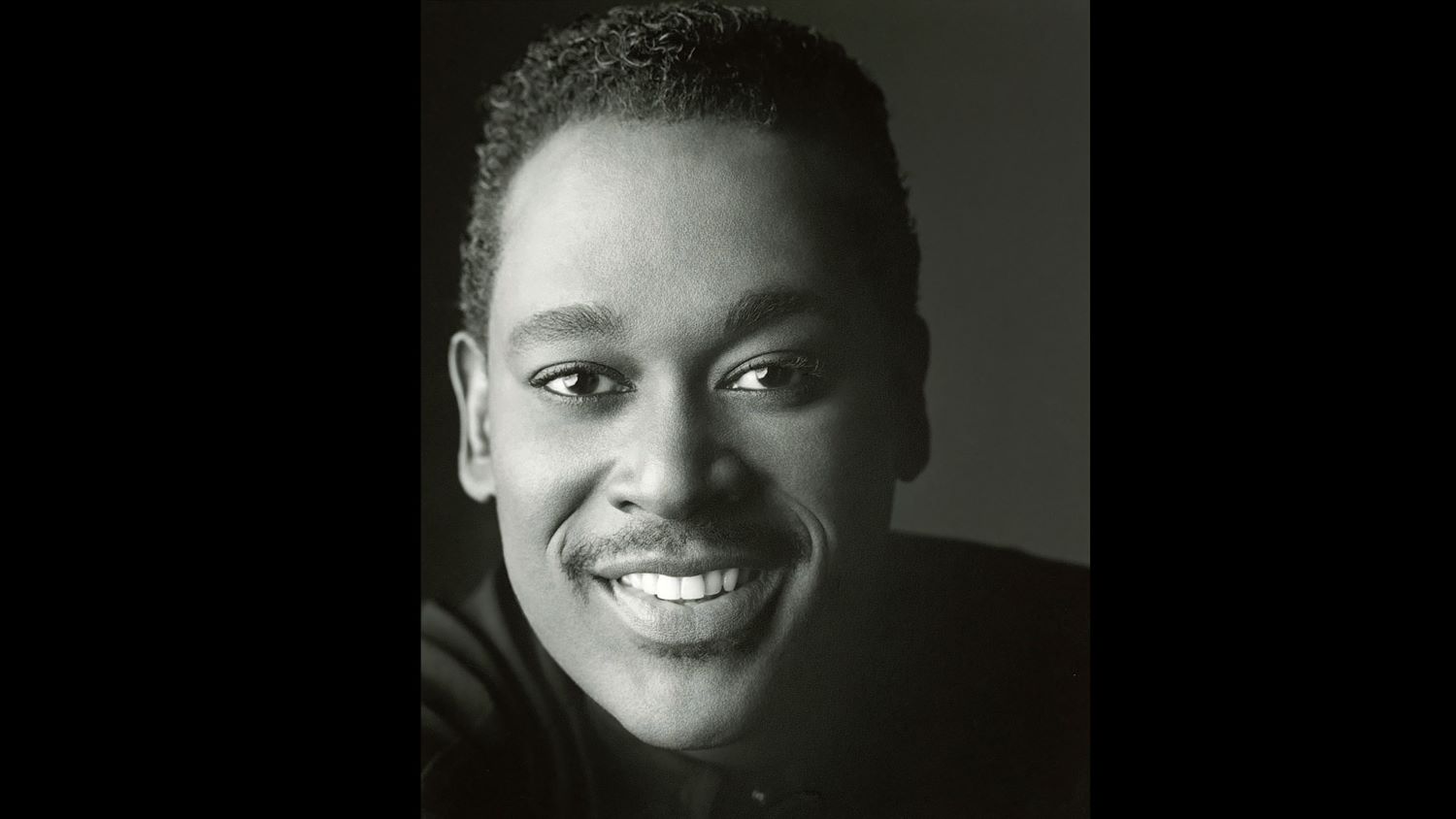The story of Norwegian Democrazy might be specific to one nation, but its message about freedom of speech is universal. The film, which screens in The Changing Face of Europe, a partnership between European Film Promotion and Hot Docs, offers a riveting portrait of the fine lines surrounding an essential aspect of democracy.
Directors/producers Bård Kjøge Rønning and Fabien Greenberg follow Lars Thorsen, an anti-Islam extremist and voice for Stop the Islamization of Norway (SIAN). Thorsen pushes the limits of Norway’s freedom of speech laws to the edge with incendiary rallies and demonstrations in which he burns copies of the Quran in the streets.
Greenberg and Rønning, speaking via Zoom, say the project began by observing anti-racism groups in Norway amid the Black Lives Matter protests, but they felt it needed to go beyond one perspective. Following some advice from the Norwegian Film Institute, they followed the racists’ side too.
Norwegian Democrazy gains extraordinary access to Thorsen and observes SIAN demonstrations cinéma vérité-style. Thorsen obsessively spouts alternative facts and random figures to passersby, sometimes while pretending to drag a burqa-clad colleague with a chain. He tries to convince his fellow Norwegians that the influx of Muslim immigrants will lead to a massacre of the native Norwegian population.
Despite the intimate portrait, the filmmakers don’t give Thorsen a platform. “Most of his speeches are cut down in some way,” notes Greenberg. “We see all the burning of the Quran, but at the same time, we decided to blur everything.” Images in the film obscure the offensive caricatures of the Prophet that Thorsen brandishes, while Norwegian Democrazy shows his inflammatory acts without subjecting viewers to the sight of the Quran aflame. Greenberg adds that blurring Thorsen’s symbols gave the film a critical lens that allowed them to interrogate the limits of free speech laws while taking a stance on what he actually says.

The film also structures the story as a debate. 20 minutes into the film, the directors introduce 18-year-old anti-racism activist Axel, known only by his given name in the film, and his fellow student protesters. Norwegian Democrazy flows as a call and response with the filmmakers capturing both sides of the argument. “Journalistically, it was walking on a tightrope,” says Rønning, noting that they had to navigate some tense, uncomfortable situations. “With this observational approach to such a sensitive topic, we were dealing with ethical doubts all along. But the plan was to get as much material as possible, fix our standpoints, and write our directorial notes in the edit.”
The filmmakers say they initially had Scandinavian audiences in mind while making the film, but expect the documentary to resonate with audiences in Canada and the USA despite differences in national histories and democratic systems. Western audiences will easily find parallels between SIAN and Flat Earthers, Trump supporters, and Freedom Convoy truckers who thrive using one-sided inflammatory debates.
“I think the absurdity of the Norwegian example will resonate in Russia and dictatorships,” says Rønning, “where people can think, ‘This is a different kind of democracy. This is how this democracy works.’”
No matter the country, context, or politics, the filmmakers hope that Norwegian Democrazy inspires debates among audiences. “This film is really about freedom, speech, democracy, the limit of the freedom of speech, and when it becomes a hateful speech,” adds Greenberg.
Norwegian Democrazy screens at Hot Docs on May 2.
Find more films from The Changing Face of Europe here.
Presented in partnership with European Film Promotion.











